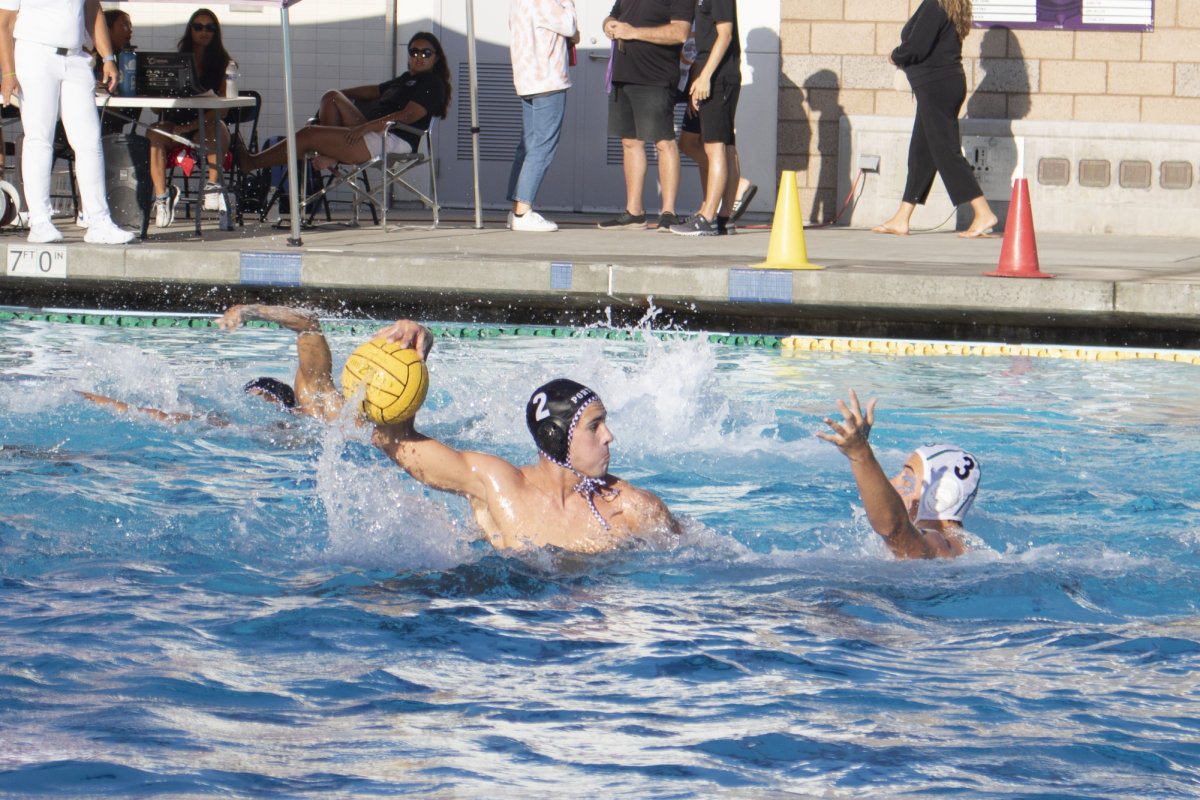A chorus of shouts. Ripples of foamy wake. A ball sailing through the air.
This is boys’ water polo, a game of constant ebbing and flowing that hinges on communication. To understand how and why teamwork is at the core of the team’s success in league and beyond, we interviewed the three team captains: senior Ryan Aminloo and juniors Luke Porter and Ryder Tonkovich.
How did you first get into water polo?
Aminloo: I’ve been playing water polo for like five years now. I originally played soccer and then made the switch to swim and then to water polo.
Porter: I started playing water polo when I was eight, and I started playing because my dad played. The first week was really hard, but after that, I just fell in love with it. It was super fun and just everything I enjoyed.
Tonkovich: I’ve been playing for about eight to nine years, and I started playing because my friends on my swim team played and got me into it. I’ve learned a lot about the game over time, especially on the defensive end.
Why did you decide to try out for water polo captain?
Aminloo: I really try my best to be a role model of respect and a positive guy on the team. We ended up doing a vote, and it’s actually pretty cool because even some of the lower levels get to vote. All the candidates kind of give their speeches and then everyone votes.
Porter: I decided to be a captain just because I saw that the seniors that really helped me the past years had all been captain, so I felt that my way to give back to Portola water polo is by becoming a captain, doing the same things they did for me.
Tonkovich: I’ve really just learned how to have open communication with my teammates and coaches as well by leading by example. The team had a vote to decide who becomes captain, and I wanted to become captain because I felt like I could help the team.
How important is teamwork?
Aminloo: We definitely have chemistry. We’re all so close, so we don’t like “ball hog” and not pass to certain people. With all these connections and bonds, our team has done so well and improved so much over the years. I’m just really proud of us winning league and our CIF run last year.
Porter: Obviously, in a team sport, teamwork is the most important thing. In fact, for winning games, it’s really important for us to work well as a team. And when we don’t, we often throw away shots that end up giving the other team another opportunity to score, so knowing how to work with others and working with each other in the pool is really important.
Tonkovich: Water polo requires a lot of communication and teamwork. I’m just really proud that both me and my team have been able to improve so much since the start of the season.
What is one of the most significant things you have learned from water polo that you can apply to your life?
Aminloo: I plan on either playing club or intramural in college. It’s been so crazy like being in the water so much throughout high school, so I’m looking forward to some low stakes water polo in college.
Porter: It would be how to work with others. You don’t always agree with people or their opinions or thoughts on what you should do in the pool, but learning to work with them and still get along and function in a team setting is very important.
Tonkovich: Hard work pays off.
There is an undeniable trend of collaboration that forms the foundation of the team, with bonds strengthening performance. Ultimately, these skilled student athletes are driven by human connection and determination that helps them form lifelong bonds.





